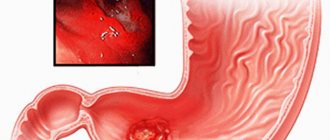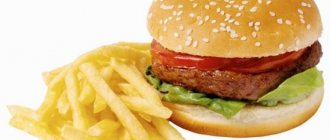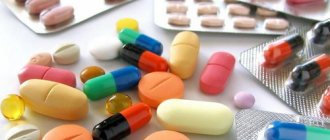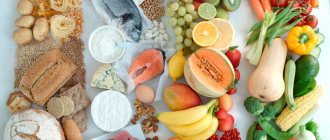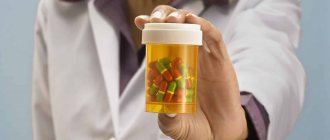As a rule, in the presence of a pathological process in the digestive system, the patient must take several types of medications, some of which eliminate symptoms, others have a therapeutic effect. For example, in case of inflammation of the stomach tissue, it is necessary to take medications that will protect the organ from the aggressive effects of hydrochloric acid, agents that normalize the digestive process, as well as medications that will eliminate the cause of inflammation.
Thus, the list of pills that need to be taken daily is impressive. Many of the medications irritate the mucous membrane, therefore, as part of complex therapy or for prevention, enveloping agents for the stomach and intestines are prescribed. Pathologies of the gastrointestinal tract (GIT) are manifested by abdominal and dyspeptic syndrome.
To eliminate severe pain, non-narcotic analgesics are used, and after the condition improves, they switch to antispasmodics. Enzyme preparations, antacids, enveloping agents, and antifoam agents help relieve dyspepsia. Medicines to restore gastrointestinal functions should be prescribed by a doctor, since only a specialist can develop the correct treatment regimen, select the best remedy, determine the dosage of the drug and, if necessary, adjust it.
Which ones exist?
Any medicine tends to be absorbed or not absorbed into the stomach.
Suction
If the components of the medicine interact with hydrochloric acid, they partially penetrate into the blood. The benefits of using such medications include rapid relief from heartburn. But the effect is short-lived.
Such products are characterized by the so-called “acid rebound”: antacids react with hydrochloric acid, resulting in the release of carbon dioxide. The stomach stretches, and hydrochloric acid begins to be produced with renewed vigor, heartburn appears again. In addition, these drugs are adsorbed in the intestines, causing the formation of edema. Side effects also include increased blood pressure, belching and bloating. Such products include, for example, soda.
The active substances of these drugs may be:
- magnesium oxide;
- sodium bicarbonate;
- magnesium and calcium carbonate.
Drugs in this group:
Non-absorbable
The most effective are non-absorbable antacid medications, which also have fewer side effects.
Non-absorbable medications neutralize hydrochloric acid, bile and pepsin. When they enter the stomach, they envelop it and protect it from irritating factors. The therapeutic effect occurs within 15 minutes and lasts up to 4 hours.
Different enveloping agents have their own mechanism of action, based on their composition:
- Medicines that coat due to aluminum phosphates. The most popular product from this group is Phosphalugel. Its effect depends on the initial level of acidity. The higher it is, the more effective the medicine.
- Antacids containing magnesium and aluminum. These include Almagel.
- Combination medications. In this case, there can be 2 variations: aluminum + magnesium + silicon and sodium + calcium. Such drugs create a mechanical barrier that prevents gastric juice from entering the esophagus.
The following non-absorbable coating agents for the stomach and intestines are popular:
- Almagel;
- phosphalugel;
- Maalox;
- altacid;
- sucralfate;
- gastracid;
- gastal;
- relzer;
- aluminum;
- gaviscon;
- palmagel;
- rutacid;
- magalfil.
Almagel
Almagel is an antacid that neutralizes the secretion of enzymatic juice in the stomach. Under its influence, less hydrochloric acid is produced, and the level of pepsin is normalized. One of the disadvantages is that the drug removes phosphorus, so it is not recommended for long-term use by people with problems of bones and joints.
Almagel is produced in the form of a suspension, which greatly facilitates application and accelerates the effect. Indicated for:
- gastritis;
- ulcers;
- esophagitis;
- increased level of acidity;
- bloating;
- pain;
- enteritis;
- poisoning;
- nausea;
- heartburn.
When taking anti-inflammatory or glucocorticoid drugs, Almagel should be used to prevent ulcers. The reception lasts no more than 2 weeks, you need to drink the product 5-10 g before meals.
Phosphalugel
Phosphalugel is an antacid substance that coats the walls of the stomach and has an adsorbing effect. The medicine is indicated for:
- gastritis and ulcers;
- hiatal hernia;
- gastroesophageal reflux;
- non-ulcerative dyspepsia syndrome;
- intestinal disorder;
- functional bowel diseases;
- diarrhea.
Antacid medication should not be used in case of serious kidney disease or individual intolerance to the components.
Adults and children under 6 years of age are prescribed the medicine 1-2 packets 2-3 times a day. Babies up to 6 months - 1 tsp. Children from 6 months - ½ sachet.
Take the drug before or after meals as follows:
- for reflux and hernia - after meals and at night;
- for ulcers - 1-2 hours after a meal;
- for gastritis and dyspepsia - before meals;
- for intestinal diseases - on an empty stomach and 1 time at night.
How to normalize the acidity of gastric juice
Hydrochloric acid promotes digestion, has a bacterial effect, triggers the synthesis of hormones that stimulate the secretion of bile, intestinal and pancreatic juice. If too much hydrochloric acid is produced, the walls of the stomach become inflamed, heartburn, sour belching, and digestive disorders appear.
It is also necessary to reduce the acidity of gastric juice to ensure functional rest of the pancreas or gall bladder. To neutralize hydrochloric acid, you need to take antacids. Drugs from this group are divided into absorbable and non-absorbable.
The former penetrate the bloodstream and begin to act within 3-5 minutes, the latter are not absorbed into the gastrointestinal tract and reduce the acid level after half an hour. Both of them last no more than 4 hours. A representative of absorbable antacids is Rennie. It contains calcium and magnesium carbonate, which contribute to the rapid neutralization of hydrochloric acid and thereby have a protective effect.
Indications for use are heartburn, belching, periodic stomach pain, a feeling of fullness and heaviness in the abdomen, flatulence, and dyspepsia. The medication is prescribed for adults and adolescents over 12 years of age, 1–2 tablets (they need to be chewed). You can take a maximum of 16 tablets per day.
Absorbable antacids also include Vikalin and Vikair. Non-absorbable antacids are considered safer because they do not penetrate the bloodstream and do not affect internal organs.
Names of drugs from this group: Maalox, Almagel, Gastal, Phosphalugel, Gastratsid, Relzer. Some antacids contain additional components that are designed to protect the gastric mucosa, relieve pain, or remove air bubbles.
For example, Almagel Neo contains aluminum hydroskid, magnesium hydroxide, simethicone. The drug is prescribed for diseases that occur with increased or normal acidity of gastric juice and with excessive gas formation in the intestines.
Depending on the type of pathology, 1 or 2 sachets of the drug are prescribed four times a day, an hour after meals. The daily dosage is up to 6 sachets, in this quantity you can take the product for no more than a month. In the complex therapy of acid-related diseases, longer-acting agents are used than antacids. These are H2-histamine receptor inhibitors and proton pump inhibitors.
Histamine H2 receptor blockers are divided into 3 generations. The first includes Cimetidine (Histodil, Tagamet), which needs to be taken 3-4 times a day, but it has antiandrogenic activity (suppresses the level of male sex hormones).
Natural antacids
The use of medical drugs is not always necessary. With prolonged use or less pronounced symptoms, we advise you to pay attention to natural antacids.
- The easiest and cheapest way to combat heartburn is to drink warm water (preferably mineral water)
- Bananas pacify stomach pain and fight the symptoms of heartburn.
- The use of potato or corn starch has a protective effect on the gastric mucosa. It practically does not dissolve in cold water, but in warm water it turns into an enveloping mixture. You can also eat starchy vegetables.
- Clove oil perfectly coats the walls of the stomach and esophagus (2-3 drops per glass of water). It is also recommended to use ground cloves as a seasoning to combat heartburn.
- Cinnamon is an excellent natural antiseptic and antacid.
- Herbal tea made from mint, lavender and anise (with the addition of honey if desired) will perfectly cope with the burning sensation in the sternum area.
- Dill seeds in a volume of ½ tsp. after eating they will help cope with heartburn and discomfort in the stomach.
- Flax seed is often used to prevent ulcers and gastritis. It is used in the form of a mucous solution. For preparation you need: 1 tsp. crushed seeds per ½ tbsp. water. Consume warm 30 minutes before meals. The product envelops the walls of the stomach, protecting it.
- Grapefruit peel, chewed for heartburn, will help cope with unpleasant symptoms.
- 1 tbsp. l. crushed walnuts once a day - good prevention of heartburn.
- Freshly squeezed potato juice, taken before meals, 2 tbsp. l. - also a wonderful remedy.
Enveloping drugs have a positive effect on the gastrointestinal tract and irritating factors no longer bring negative consequences. The products have passed tests, as a result of which a beneficial effect has been proven for people suffering from frequent heartburn, gastritis and ulcers. Before choosing a medication for yourself, you should consult your doctor, as there are contraindications for use. You also need to select the dosage individually.
Enveloping drugs are drugs that cover the mucous membranes and tissues, forming a viscous film over them that protects sensitive nerve endings from irritation.
Starch mucilage ( Mucilago
Amyli )
is a colloidal solution of starch in hot water.
Wheat ( Amylum Tritici
), corn (
Amylum Maydis
), rice (
Amylum Oryzae
) or potato (
Amylum Solani
) starch is used to make mucus.
Used internally in the treatment of gastroduodenitis (reduces pain, belching) and in the form of enemas for proctitis, sigmoiditis, Crohn's disease. Sometimes starch mucus is prescribed together with drugs that have an irritating effect on the gastrointestinal mucosa.
FV: mucus 2% extemporaneously prepared.
Flax seed mucilage ( Mucilago
semenis Lini )
Flax seeds (
Linum usitatissimum L. water
. Used orally in the treatment of gastroduodenitis (¼-½ cup) 4-6 times a day, as well as together with medications that irritate the gastrointestinal tract.
FV: mucus 1:30 extemporaneous preparation.
P
olivinox (Polyvinox, Vinylin, Schostakowski Balsam)
It is a viscous syrupy liquid with a specific smell and taste. Upon contact with wound defects, it forms an adhesive film over them.
Promotes cleansing, regeneration and epithelization of wounds, while it creates conditions unfavorable for the proliferation of microorganisms.
Reduces the secretion, acidity and proteolytic activity of gastric juice.
Application and dosage regimen:
Externally in the treatment of boils, carbuncles, trophic ulcers, purulent wounds, burns and frostbites, mastitis, they are used in pure form (perse), as well as in the form of a 20% oil solution or 3-5% ointment (with the addition of 0.75% silver nitrate) .
Orally for stomach and duodenal ulcers, gastritis on the first day, 3 capsules or 1 teaspoon at night, 5-6 hours after the last meal, then 5 capsules or 1 dessert spoon daily for 15-20 days.
Gastrointestinal drugs
Therapeutic therapy for pathologies of the gastrointestinal tract usually includes several areas: taking medications, following a diet, giving up bad habits, and changing lifestyle.
Based on the nature of their effect on the body, medications can be divided into several groups, each of which is responsible for relieving a specific symptom.
Antimicrobials
The treatment regimen for gastritis and ulcerative lesions of the mucous membrane in the case of detection of pathogenic microorganisms (Helicobacter pylori) is supplemented by the prescription of antibiotics:
- Amoxicillin is a semi-synthetic drug based on penicillin, easily absorbed without causing irritation;
- bismuth preparations (De-Nol), which, in addition to the antibacterial effect, has the property of enveloping the mucous membrane, protecting and restoring it;
- the effectiveness of macrolides, including Klacid, Sumamed, Rulid, in fighting infection has been confirmed by numerous studies.
For diarrhea lasting more than three days and the inability to see a doctor (on long trips, living in sparsely populated areas), Ciprofloxacin is used. The course should not exceed 3 days.
Intestinal disorders associated with the development of pathogenic microflora (for example, uncontrolled proliferation of yeast-like fungi of the genus Candida) may require antimycotic treatment with drugs: Fluconazole, Pimafucin, Nystatin.
Probiotics
Along with antibacterial agents, probiotic medications are prescribed that restore intestinal microflora. Probiotics are live bacteria (strains of lactobacilli and bifidobacteria) that are beneficial to the human body and inhibit the activity of pathogenic microbes.
Sometimes these drugs are enough to improve the course of dysbiosis: Linex, Bifiform, Bifidumbacterin, Acylact.
Antacids
An increase in the acidity level of the gastric environment is one of the reasons for the development of gastritis and stomach ulcers. Hydrochloric acid aggressively affects the walls of the organ, corroding them and causing inflammation. Preparations based on compounds of magnesium and aluminum or sodium and calcium help neutralize acidic digestive juice.
Antacids do not dissolve in water, reduce the secretion of pepsin, and can bind some toxins.
The effect of antacids absorbed into the blood occurs faster, but their effect is short-lived, after its end the production of hydrochloric acid may increase. These drugs include: baking soda; Rennie. The drugs are indicated in case of urgent need to reduce the secretion of gastric juice.
Non-absorbable antacids have a longer-lasting effect, but it does not occur immediately:
- Phosphalugel based on aluminum phosphate normalizes the pH balance and protects the walls of the stomach;
- Almagel, Maalox (based on aluminum and magnesium compounds) reduce the amount of digestive juice secreted and gently envelop the mucous membrane; the composition of Almagel A is supplemented with benzocaine, which allows the medicine to be used, including for pain;
- Talcid, Gastal, obtained by combining aluminum, magnesium and calcium, create a protective layer that prevents damage to the mucous membrane;
- Rutacid removes excess hydrochloric acid from the body and stimulates the functioning of the gallbladder;
- Gelusil varnish, in addition to neutralizing acid, has a restorative effect on damaged stomach walls.
Antisecretory agents
The list of these drugs includes medications that inhibit the production of digestive juice. They are divided into two groups: proton pump inhibitors and H2-antihistamines.
The former effectively block the production of hydrochloric acid at the cellular level, so they are actively used in the treatment of ulcerative diseases of the digestive organs: Omez, Nexium.
The latter affect the histamine receptors of cells, as a result of which the production of gastric juice decreases: Kvamatel, Ranitidine.
Characteristics of enveloping agents
Enveloping drugs are high-molecular compounds that form colloidal solutions or emulsions upon contact with water. A thin film is created that protects the nerve endings of the mucous membranes from the irritating effects of aggressive substances that make up the gastric juice. This provides an analgesic and anti-inflammatory effect.
Most coating substances have adsorbent and antacid properties. Drugs that coat the gastric mucosa are divided into two groups.
Products based on natural ingredients:
- liquorice root;
- flax-seed;
- potato, corn starch;
- whole oats, oat flakes;
- comfrey root.
Synthetic chemical compounds:
- preparations based on colloidal bismuth;
- products containing aluminum;
- combination medications.
Indications for use
Antacids are necessary for diseases of the gastrointestinal tract. The composition contains components that react with water, forming substances that envelop the stomach. This is why the drugs are so popular.
Enveloping agents are indicated for:
- acute gastritis;
- chronic gastritis;
- stomach and duodenal ulcers;
- heartburn;
- inflammation of the pancreas;
- reflux-esophagitis;
- with inflammation of the gallbladder;
- enteritis;
- colitis;
- one-time diet violation;
- toxicosis of pregnant women;
- burns.
Medicines have the following effects:
- envelop the stomach, protecting it;
- stop nausea and vomiting;
- eliminate pain;
- neutralize excess hydrochloric acid;
- prevent reflux (reflux of bile from the duodenum into the stomach);
- fight diarrhea.
Pharmacies offer a wide selection of medicines. To help you decide, let's look at the most popular drugs.
- Constantly taking antacids without a doctor's prescription can negatively affect your health.
- If you often have to resort to such drugs for nausea, to eliminate heartburn or for epigastric pain, do not delay visiting your doctor for a diagnosis and treatment. Such symptoms indicate the presence of gastrointestinal disease. If you ignore them, the disease will worsen and it will be much more difficult to cure.
- For ulcers, gastritis and other pathologies of the stomach and intestines, antacid drugs are used as part of complex therapy (more to neutralize the unpleasant symptoms of the disease).
- Children and pregnant women should take enveloping drugs with caution. Some of them are contraindicated for these categories of people. Consult your physician before use.
Mechanism of action
Normally, to protect the mucous membrane, a special mucus is synthesized in the stomach - mucin. This is an insoluble organic substance designed to protect the gastric epithelium from the aggressive acidic environment of gastric juice. Impaired mucus production leads to exposure of the mucous membrane and the formation of erosions and ulcers on it.
Therapeutic effect of enveloping substances:
- They bind pepsin and bile acids that enter the stomach during reflux.
- They produce a cytoprotective effect due to stimulation of endogenous prostaglandins.
- Improves blood supply to the mucous membrane.
Doctor's advice
Gastric ulcer is a serious chronic disease that occurs cyclically with remissions and exacerbations. In each period, treatment tactics are different. It is the doctor’s prerogative to select medications that are most suitable for a given phase of the disease, and it is the patient’s job to strictly follow all the doctor’s instructions.
It is necessary to comply with the doses of the prescribed gastric coating agents. Increased doses of the drug can lead to alkalization of gastric juice, which will cause a decrease in the digestive ability of the stomach.
Before using traditional medicine methods, consultation with a gastroenterologist is necessary.
Medicines
Colloidal bismuth preparations
Colloidal bismuth compounds, when combined with gastric hydrochloric acid, form a glycoprotein-bismuth complex, which settles mainly in the area of eroded and ulcerated areas of the mucosa. The protective barrier does not allow hydrochloric acid, pepsin, or food to reach the damaged areas, and the mucous membrane is restored faster.
A feature of bismuth preparations is their low bioavailability. During a course of treatment after a month, the concentration of bismuth in the blood plasma barely reaches 50 mcg/l. It takes 8 weeks to completely remove bismuth compounds from the body.
- De-nol;
- Vetrisol;
- Bizmat;
- Bisnall.
Side effects: headache, dizziness, alternating constipation and diarrhea. The stool is dark due to the formation of bismuth sulfide in the intestines.
Sucralfate is a complex aluminum-containing disaccharide that is not absorbed when taken orally. Polymerization occurs in the acidic environment of the stomach.
The resulting substance tightly combines with the proteins of the gastric mucosa, especially in the area of erosions and ulcers. The protective layer in the organ lasts up to 8 hours.
Side effects: dry mouth, stomach discomfort, nausea, stool disorders, local allergic reaction - hyperemia and itching of the skin.
- children under 4 years old;
- pregnancy period;
- renal dysfunction.
Preparations containing aluminum
Phosphalugel - colloidal aluminum phosphate has an antacid, enveloping, sorbing and analgesic effect. The drug, neutralizing excess hydrochloric acid, preserves the environment in the stomach necessary for digesting food. Envelops the walls of the stomach, reduces pain, accelerates epithelial repair.
Products useful for a sick stomach
Firstly, food should be enveloping. And these are jelly and porridge. You can brew flax seeds and use the resulting slimy infusion. Coarse fiber is contraindicated. You should not eat any vegetables raw. Moreover, fruits must be baked, and products that contribute to gas formation must be completely excluded. Fresh drinks are also prohibited.
For many years, doctors and nutritionists will argue and prove that they are right. New diets will be invented, healthy foods for the stomach will be discovered. But the main thing is to listen to your body, do not overindulge in food and live happily. Then there will be no problems with the stomach.
Project consultant, co-author of the article: Ovchinnikova Natalya Ivanovna | Gastroenterologist, Hepatologist, Infectious disease specialist 30 years of experience / Doctor of the highest category, Candidate of Medical Sciences
Education:
Diploma in General Medicine, Novosibirsk State Medical Institute (1988), Residency in Gastroenterology, Russian Medical Academy of Postgraduate Education (1997)
Traditional medicine recipes
Natural coating agents are used together with other medicines used in the treatment of stomach diseases.
Flax seeds
Pour 50 g of flax seeds into a liter of hot water. Put on fire, bring to a boil, stirring constantly. The result will be a decoction reminiscent of jelly. Strain and drink a cup 3 times a day between meals.
Pour a large spoonful of seeds crushed in a blender with a cup of boiling water. Leave to infuse for 8 hours. Do not strain, drink with seed particles every evening before bed.
Licorice root
Dry fry 2 small spoons of crushed root, add half a liter of boiling water, leave for 8 hours. After straining, drink 30 drops three times a day half an hour before meals.
Dilute a large spoonful of plant material with a glass of water.
Simmer in a water bath for 20 minutes. After 2 hours, squeeze out and strain. Take the decoction by spoon 4 times a day.
Starch
Add 2 large tablespoons of starch per liter of liquid. Place on the fire and, constantly stirring the mixture with a spoon, bring to a boil. After cooling, drink a cup before eating. It is not recommended to add jam or berries to jelly when treating ulcers and gastritis.
To quickly relieve heartburn, place a spoonful of dry starch in your mouth and gradually wash it down with warm water.
Oats
Pour a glass of whole grains with a liter of cold boiled water. For fermentation, place the solution in a warm place for 12 hours. Then boil the mixture for 30 minutes. After straining, the healing decoction is ready. Drink half a cup 30 minutes before meals until all symptoms disappear.
Pour a glass of oats into a container with a liter of water. Cook, stirring occasionally for 4 hours. When boiling, add liquid to the original volume. The broth will acquire the consistency of jelly. Grind the boiled grains until the broth becomes homogeneous. Drink 2-3 glasses a day for a long period.
If you have high acidity, the patient should start the day with oatmeal. The enveloping properties of this dish will protect the walls of the stomach throughout the day.
Comfrey root
Brew a teaspoon of powdered root in a glass of boiling water. Leave for 3-4 hours. Take a spoon 5 times a day half an hour before meals.
Grind the dry root into a fine powder, pour a tablespoon into a cup with 50 g of honey, and thoroughly grind the mixture until smooth. Leave for 2 weeks. Take a coffee spoon half an hour before meals for 14 days.
Food should be chewed slowly
Haste accompanies us every step of the day.
Eat more slowly, tasting the food you eat, and after eating, do not make sudden movements for 15-20 minutes, allowing the stomach to properly digest its contents.
Food should be chewed slowly
Professor Kenneth Koch from Wake Forrest University in the US believes that stress can affect any part of our digestive system. This can cause inflammation and make the digestive system more susceptible to infections. Additionally, stress can cause overproduction of digestive enzymes and lead to indigestion.
One of the methods he recommends is physical activity. This affects not only the health of the body, but also the production of endorphin - the hormone of joy and pleasure. Severe stress causes the body to release adrenaline and this causes more digestive acids. Therefore, when we are under stress, we may feel a burning sensation in the stomach or heartburn.
Fish
Regular consumption of fish (herring, cod, pink salmon, salmon) is beneficial for people suffering from chronic gastritis, colitis and other stomach pathologies.
It is known that fish contains a significant amount of proteins, essential amino acids, vitamins and minerals, which participate in the formation of normal microflora of the digestive tract and prevent the development of infectious and inflammatory pathologies.
In addition, seafood is easily digestible and dietary food.
Also, omega-3 fatty acids in fish prevent a number of abnormalities of the heart and blood vessels (including atherosclerosis).
